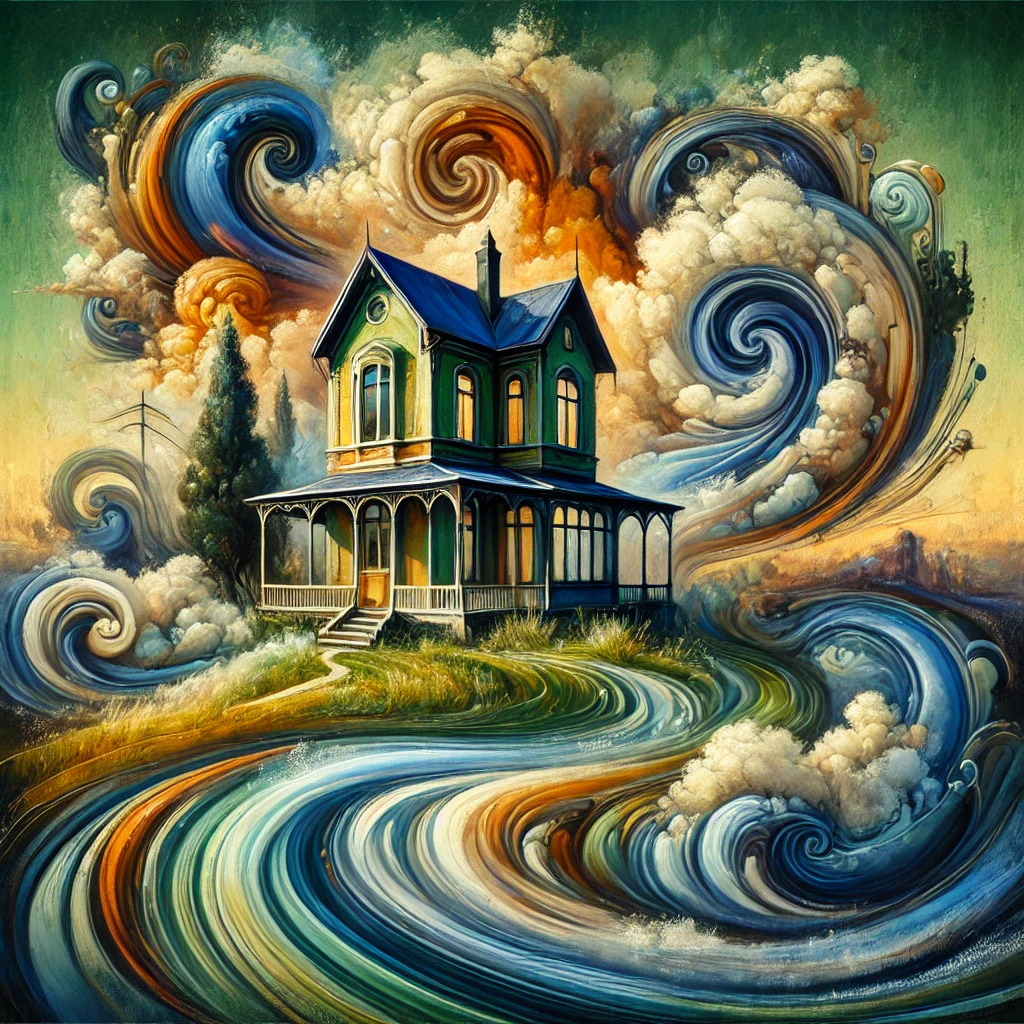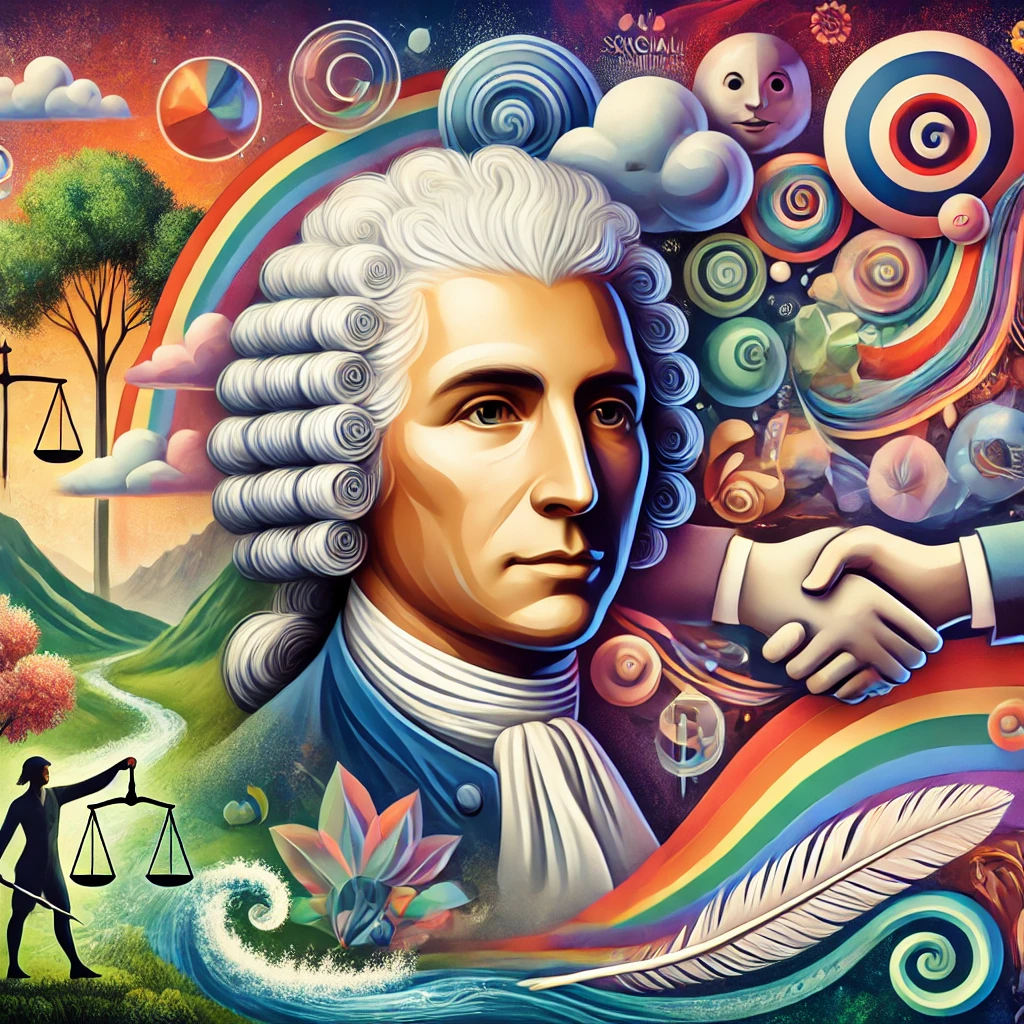Romanticism

Place of Origin: Europe (primarily Germany, England, and France)
Century of Origin: 18th-19th Century CE
Associated Philosophers:
Overview of Romanticism
Romanticism is a profound intellectual, cultural, and artistic movement that began in the late 18th century. It arose as a reaction against the rationalism of the Enlightenment and the mechanization of the Industrial Revolution. Romantics celebrated emotion, imagination, and individualism, focusing on personal experience and a connection to nature. This movement championed the sublime—the overwhelming experiences of awe and wonder that transcend ordinary understanding.
Romantic metaphysics rejected the Enlightenment view of the universe as a machine governed by fixed laws. Romantics saw nature as alive, deeply interconnected with human emotion and imagination. They believed that the material world was a reflection of deeper, spiritual truths, accessible through emotional and aesthetic engagement with nature. The sublime—nature’s grandeur that evokes both awe and fear—was central to this metaphysical view.
Romantics argued that emotion, intuition, and imagination are equally important as reason for understanding the world. They believed that some truths could only be discovered through personal experience and a deep connection to nature. Romantics like Wordsworth emphasized that knowledge comes from within, through feeling and emotional depth, rather than through detached scientific inquiry.
Romantic ethics emphasized living authentically and following one’s inner desires. They believed that morality should come from an individual’s emotional and intuitive sense of right and wrong, rather than from societal rules. Romantics saw personal freedom, emotional expression, and a life in harmony with nature as key to a meaningful existence.
Romantics did not reject logic but believed that human experience could not be fully understood through reason alone. They argued that many of life’s deepest truths were irrational, emotional, and beyond the grasp of logical analysis. Romantics valued paradox, ambiguity, and metaphor, seeing them as essential for understanding the complexities of life.
Romantic aesthetics focused on the power of the imagination and the emotional impact of beauty. They admired the wild, untamed aspects of nature and believed that art should evoke intense emotions. Romantic artists and writers often sought to capture the sublime—the beauty and terror that transcends ordinary experience. Art, for the Romantics, was an expression of the soul, capable of revealing deeper truths about human existence.
Romantics believed that philosophical exploration should be intuitive, creative, and personal. They rejected rigid, systematic reasoning, favoring instead a more fluid approach that embraced emotion, imagination, and personal reflection. Many Romantics used art, literature, and music as methods of philosophical inquiry, believing that the creative process itself could reveal philosophical truths.
Romantics viewed humans as complex beings, driven by emotions, creativity, and imagination. They believed that the essence of humanity lay in the depths of the soul and that personal fulfillment came from embracing all aspects of the self, especially the emotional and irrational. Romantics also saw humans as inherently connected to nature, with true happiness found through living in harmony with the natural world.
Romanticism critiqued industrialization and urbanization, idealizing rural life and viewing modern society as alienating. Politically, Romantics were divided: some were conservative, emphasizing tradition and cultural heritage, while others were revolutionary, advocating for individual freedom and social reform. Rousseau’s idea that civilization corrupts humanity was influential in Romantic political thought.
Romanticism emerged in the late 18th century in response to the Enlightenment and the Industrial Revolution. Figures like Rousseau, Goethe, and Wordsworth helped shape the movement, which spread throughout Europe and the United States. Romantic ideas about emotion, individuality, and nature influenced later movements such as existentialism and transcendentalism.
Romanticism emphasized the importance of emotion, imagination, and individual experience. It celebrated the power of nature, the sublime, and the creative process. Romantics explored the tension between the individual and society, the limits of reason, and the idea that truth could be found through personal, emotional engagement with the world.
Jean-Jacques Rousseau, Johann Wolfgang von Goethe, William Wordsworth, and Samuel Taylor Coleridge are key figures in Romanticism, each contributing to its focus on emotion, nature, and the inner life of the individual. Their works helped shape Romantic thought, inspiring generations of artists and thinkers.




